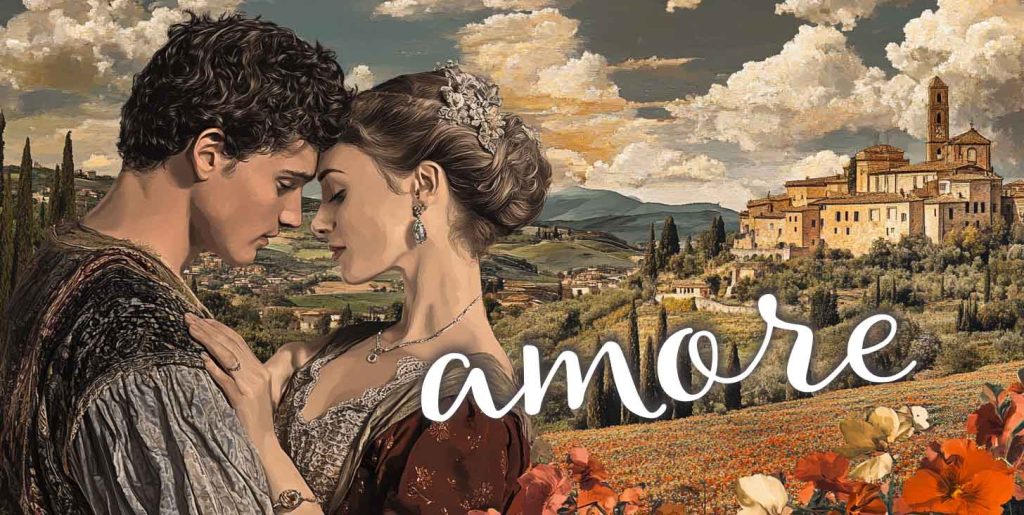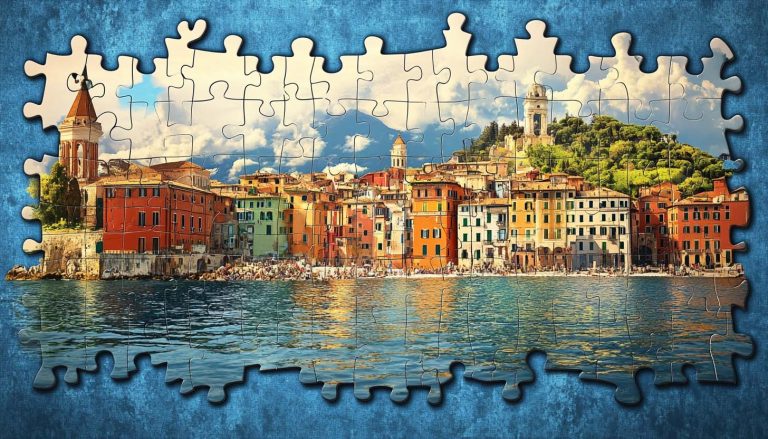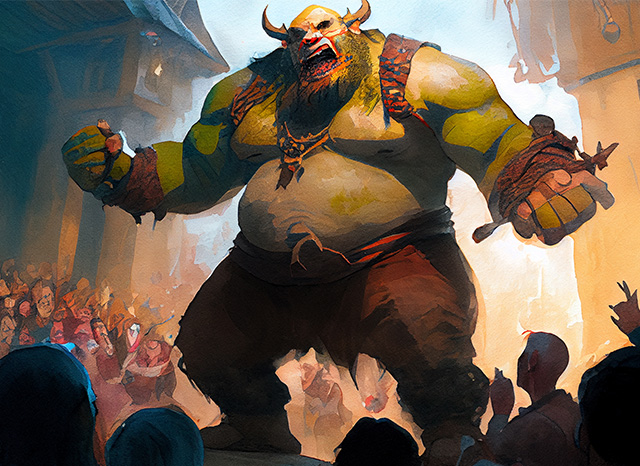
Espressioni dal cuore: quando le parole raccontano emozioni
Expressions from the heart: when words tell emotions
Innamoratevi… almeno una volta!
Fall in love… at least once!
In Italia, soprattutto d’estate, canzoni specifiche diventano così popolari da essere definite “tormentoni”. Sono quelle melodie che senti ovunque: in radio, in macchina, nei negozi, e persino sulla spiaggia.
In Italy, especially during summer, certain songs become so popular that they’re dubbed “tormentoni.” These are the tunes you hear everywhere: on the radio, in the car, in shops, and even on the beach.

Le emozioni scorrono come il vino in Toscana
Emotions flow like wine in Tuscany
In Italia, le emozioni scorrono liberamente come il vino in una vigna toscana. Gli italiani non si limitano a provare emozioni: le vivono con passione, espressione e, naturalmente, tanti gesti delle mani! Dai vivaci gridi di gioia in una piazza ai sussurri d’amore sotto un cielo illuminato dalla luna, le emozioni in Italia sono tanto varie e colorate quanto il paesaggio stesso.
In Italy, emotions flow as freely as the wine in a Tuscan vineyard. Italians don’t just feel; they live their emotions with passion, expression, and, of course, a lot of hand gestures! From the vibrant shouts of joy in a piazza to the heartfelt whispers of love under a moonlit sky, emotions in Italy are as diverse and colorful as the landscape itself.

Amore: il cuore delle emozioni italiane
Love: the heart of Italian emotions
Si dice spesso che gli italiani vivano bene e amino ancora meglio. Nella terra di Dante e Beatrice, Romeo e Giulietta, Paolo e Francesca, Renzo e Lucia, Laura e Petrarca, Sophia Loren e Marcello Mastroianni e, naturalmente, Casanova (che aveva forse un po’ troppo amore da condividere!), l’amore è l’emozione che regna sovrana.
It’s often said that Italians live well and love even better. In the land of Dante and Beatrice, Romeo and Juliet, Paolo and Francesca, Renzo and Lucia, Laura and Petrarch, Sophia Loren and Marcello Mastroianni, and, of course, Casanova (who had a bit too much love to share!), love is the emotion that truly reigns supreme.
Ma come esprimono l’amore gli italiani, oltre quei baci appassionati e quegli abbracci intensi? Lo fanno attraverso la loro splendida lingua: poesie, canzoni e romanzi che risuonano attraverso i secoli. Immergiamoci nei tanti modi in cui gli italiani esprimono l’amore, a partire dalla parola che racchiude tutto: amore.
But how do Italians express love beyond those passionate kisses and embraces? They do it through their beautiful language—poems, songs, and novels that have echoed through the centuries. Let’s dive into the many ways Italians express love, starting with the word that captures it all: amore.
Sostantivo = AMORE
L’amore è eterno finché dura.
Love is eternal while it lasts
Aggettivo = AMOROSA
Una lettera amorosa
A love letter
Verbo = AMARE
Ti amo con tutto il cuore.
I love you with all my heart.
Verbo riflessivo = INNAMORARSI
Ci siamo innamorati a prima vista.
Ci siamo innamorati a prima vista.

Occhio alle parole che somigliano ad “Amore”!
Watch out for words that sound like “Amore”!
Ma attenzione! Non tutte le parole che somigliano ad amore sono dolci e tenere—alcune possono essere pungenti o persino amare. Per esempio, amo non è solo la prima persona del verbo “amare” (to love); è anche un sostantivo che significa “uncino da pesca.”
But be careful! Not all words that sound like amore are soft and sweet—some are downright prickly or even bitter. For instance, amo isn’t just the first-person conjugation of “amare” (to love); it’s also a noun meaning “fish hook.”
Allo stesso modo, amaro non è una forma del verbo “amare”: è un sostantivo che indica qualcosa di “amaro,” come un digestivo dopo cena. Quindi, se il tuo cameriere italiano ti chiede, “Vuoi un amaro?”, non ti sta offrendo più amore, ma un finale agrodolce per il tuo pasto!
Similarly, amaro isn’t a form of “amare” either—it’s a noun that refers to something “bitter,” like an after-dinner digestive. So, when your Italian waiter asks, “Vuoi un amaro?” he’s not offering you more love—he’s suggesting a bittersweet conclusion to your meal!

La felicità e oltre: emozioni positive in italiano
Happiness and beyond: positive emotions in Italian
Felicità – La felicità è nelle piccole cose.
Happiness is in the little things.
Gioia – Provo una grande gioia quando ti vedo.
I feel great joy when I see you.
Serenità – Trovo serenità nella natura.
I find serenity in nature.
Emozioni negative: le parole per esprimere la tristezza
Negative emotions: words to express sadness
Tristezza – C’è tanta tristezza nei suoi occhi.
There’s so much sadness in her eyes.
Paura – Ho paura del buio.
I’m afraid of the dark.
Frustrazione – La frustrazione è normale in situazioni difficili.
Frustration is normal in difficult situations.

Qualunque sia la tua emozione, impara a esprimerti in italiano.
However You Feel, Learn to Express Yourself in Italian
Che tu sia felice o triste, imparare a esprimere le tue emozioni in italiano ti porterà più vicino alla vera anima di questa cultura appassionata. Immergiti nel ricco vocabolario delle emozioni italiane e lascia che i tuoi sentimenti siano ascoltati… con amore!
Whether you’re overjoyed or heartbroken, learning to express your emotions in Italian will bring you closer to the true spirit of this passionate culture. Dive into the rich vocabulary of Italian emotions, and let your feelings be heard… con amore!










